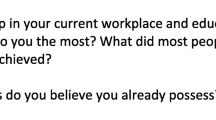Abstract
Ethical leadership skills are crucial for professionally competent engineers working in a global context. This article explores the possibility of integrating a non-Western ethical tradition of Confucian ethics into the teaching of ethical leadership in engineering ethics. First comes a brief discussion of the historical origins of Confucianism and its persistence in contemporary Chinese culture. Second is a conceptualization of the major aspects of Confucian ethical leadership including moral power, role modeling, and meritocratic ethical leadership, introducing a prevalent approach to developing ethical leadership in the Confucian tradition: self-cultivation. The practice of self-cultivation often includes three interrelated processes: observation, reflection, and practice. The Confucian development of ethical leadership goes through four different moral psychological stages: beginner, developing learner, junzi, and sage. Finally, I discuss potential implications of the Confucian understanding of ethical leadership for teaching engineering ethics.
Similar content being viewed by others
Notes
All names of these research participants in this paper are pseudonyms.
References
Bell, Daniel A. 2016. The China model: Political meritocracy and the limits of democracy. Princeton: Princeton University Press.
Cheng, Chung-ying. 2004. A theory of Confucian selfhood: Self-cultivation and free will in Confucian philosophy. In Confucian Ethics: A Comparative Study of Self, Autonomy, and Community, ed. Kwong-loi Shun and David Wong, 124–147. Cambridge: Cambridge University Press.
Cottine, Cheryl. 2016. Role modeling in an early Confucian context. The Journal of Value Inquiry 50 (4): 797–819.
de Figueiredo, Antonio Dias. 2008. Toward an epistemology of engineering. 2008 Workshop on Philosophy and Engineering. London.
Gardner, Daniel K. 2014. Confucianism: A very short introduction. Oxford: Oxford University Press.
Harris, Charles E., Jr. 2008. The good engineer: Giving virtue its due in engineering ethics. Science and Engineering Ethics 14 (2): 153–164.
Harris, Charles E., Jr., Michael S. Pritchard, Michael J. Rabins, Ray James, and Elaine Englehardt. 2014. Engineering ethics: Concepts and cases. 5th ed. Boston: Wadsworth.
Healy, Tim. 1997. Parallels between teaching ethics and teaching engineering. Annual Meeting of the Pacific Southwest Section of the American Society for Engineering Education. San Luis Obispo.
Ip, Po Keung. 2011. Practical wisdom of Confucian ethical leadership: A critical inquiry. Journal of Management Development 30 (7/8): 685–696.
Lai, Karyn. 2003. Confucian moral cultivation: Some parallels with musical training. In The moral circle and the self: Chinese and western approaches, 107–139. Chicago: Open Court.
Lai, Karyn. 2007. Understanding Confucian ethics: Reflections on moral development. Australian Journal of Professional and Applied Ethics 9 (2): 21–27.
Leydens, Jon A., and Juan C. Lucena. 2018. Engineering justice: Transforming engineering education and practice. Hoboken: Wiley.
Li, Chenyang. 2009. Where does Confucian virtuous leadership stand? Philosophy East and West 59 (4): 531–536.
Luegenbiehl, Heinz, and Rockwell Clancy. 2017. Global engineering ethics. Cambridge: Elsevier.
Martin, Mike W., and Roland Schinzinger. 2005. Ethics in engineering. 4th ed. New York: McGraw-Hill.
Mitcham, Carl. 2014. The true grand challenge for engineering: Self-knowledge. Issues in Science and Technology 31 (1): 19–22.
Munro, Donald J. 1969. The concept of man in early China. Ann Arbor: University of Michigan Center for Chinese Studies.
Olberding, Amy. 2012. Moral exemplars in the analects: The good person is that. New York: Routledge.
Riegel, Jeffrey. 2013. Confucius. The Stanford Encyclopedia of Philosophy. Edited by Edward N. Zalta. Accessed November 25, 2017. https://plato.stanford.edu/archives/sum2013/entries/confucius/.
Rosemont, Henry Jr, and Roger T. Ames. 2016. Confucian role ethics: A moral vision for the 21st century? Göttingen: Vandenhoeck & Ruprecht.
Rothlin, Stephan, and Dennis McCann. 2014. Cross-cultural challenges with ethics training in China. In Ethics training in action: An examination of issues, techniques, and development, ed. Leslie E. Sekerka, 83–102. Charlotte: Information Age Publishing.
Volti, Rudi. 2008. An introduction to the sociology of work and occupations. Los Angeles: Pine Forge Press.
Wong, David. 2017. Chinese ethics. The Stanford Encyclopedia of Philosophy. Edited by Edward N. Zalta. Accessed November 25, 2017. https://plato.stanford.edu/archives/spr2017/entries/ethics-chinese/.
Zhu, Qin. 2017. Chinese technocracy. Issues in Science and Technology 33 (2): 14–15.
Acknowledgements
An earlier version of this paper was presented at the 19th Annual Conference of the Society for Ethics Across the Curriculum in Grand Rapids, Michigan, October 5-7, 2017. Part of the section “Confucianism: Past and Present” was adapted from my review of the book Confucianism: A Very Short Introduction which was published in the journal China Report, volume 51, issue 3, 2015. The author would like to thank Carl Mitcham for his constructive comments which helped improve the quality of this manuscript.
Author information
Authors and Affiliations
Corresponding author
Ethics declarations
Conflict of interest
The corresponding author states that there is no conflict of interest.
Rights and permissions
About this article
Cite this article
Zhu, Q. Engineering ethics education, ethical leadership, and Confucian ethics. International Journal of Ethics Education 3, 169–179 (2018). https://doi.org/10.1007/s40889-018-0054-6
Published:
Issue Date:
DOI: https://doi.org/10.1007/s40889-018-0054-6




